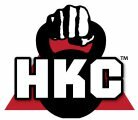Sports Nutrition
SPORTS PERFORMANCE AND SPORTS NUTRITION
I think the Nutrition for Football: The FIFA/F-MARC Consensus Statement (FIFA.com) says it all when it comes to the importance of sports diet and nutrition:
"Football players can stay healthy, avoid injury and achieve their performance goals by adopting good dietary habits. Players should choose foods that support consistent, intensive training and optimise match performance. What a player eats and drinks in the days and hours before a game, as well as during the game itself, can influence the result by reducing the effects of fatigue and allowing players to make the most of their physical and tactical skills. Food and fluid taken soon after a game and training can optimise recovery. All players should have a nutrition plan that takes account of individual needs."
ENERGY = CALORIES
Energy is the body's first nutritional priority. The energy content of food is measured by a unit called a kilocalorie, which most of us call a calorie. A calorie is a measurement of amount of heat required to raise 1 gram of water by 1 degree centigrade. Energy in food is supplied by fat, protein, carbohydrates. Protein and carbohydrates give 4 calories of energy per gram. Fat gives 9 calories of energy per gram.
Due to this fact, it is not only the number of calories in your diet that is significant, but the composition of those calories as well. You need a balanced intake of carbohydrates, proteins, and fats. They can be taken from the 5 major food groups: (1)fruits, (2) vegetables, (3) grains and legumes, (4) dairy products, (5) meats. Eat 5-6 times per day in small meals and make sure you eat breakfast. Consume most of your day's worth of calories before dinner.
CARBOHYDRATES
1. 20-50% of total caloric intake per day
2. Try the following suggestions:
Bread - Choose grainy varieties and sourdough
Mixed Beans
Potatoes - Switch to sweet potatoes
Cereals - Try brans or oatmeal (must soak overnight)
Rice - Switch to basmati, brown rice, Canadian long grain or couscous
Pasta - Try vegetable based or whole grain pasta. Better yet, switch to whole grains like buckwheat kernals, quinoa, kamut, millet, teff, amaranth.
Sugar - Use honey, applesauce, or dried fruit to sweeten dishes
"There is a growing body of research that shows eating certain types of carbohydrates - like those found in potatoes and highly processed foods like white bread - can make you hungrier. That's because the body processes them more quickly - causing a spike in blodd glucose, which in turn gives you a quick surge of energy. But then you crash and you're hungry again. And hunger is the primary reason diets fail." (Wall Street Journal 4/15/03 Personal Journal Page 1)
The worst carbs are regular bread, sugar added foods, most cereals, fruit juices and bars, bagels, sodas and candy.
Carbohydrates are the body's primary fuel source. Carbohydrates are often classified as "simple" or "complex." Although you might think that simple carbs would be absorbed more rapidly than the larger complex carbs, this is not always true. There is a newer system of classification called the Glycemic Index (GI). This terms refers to the rise in blood sugar (glucose) from any given food as compared to pure glucose. For example, the GI of a bagel is 72; this means that the bagel causes blood glucose to rise 72% as much as pure glucose. Processed foods increase the GI whereas high fructose content foods and the co-ingestion of fat, fiber, and protein decrease the GI.
PROTEIN
1. 15-30% of total caloric intake per day
2. Sources: Fish (salmon, tuna, cod), chicken, beef, eggs, dairy products (complete proteins), mixed beans, lentils, vegetables (incomplete proteins).
Proteins are the building blocks of muscles, enzymes, and some hormones. They are formed by units called amino acids (AA). There are 20 different AA's - all must be present simultaneously for optimal growth and body functioning. There are 9 essential AA's; this means they cannot be produced by the body so they have to be supplied by the diet. The remainder are nonessential AA's; AA's that can be produced by the body. Some foods are complete proteins (contain all the essentials AA's) and some are incomplete proteins (lack 1 or more of the essential AA's). Vegetarians must combine foods properly to insure sufficient complete protein intake.
The worst proteins are fatty meat, fatty dairy, lunch meats and high soy diets.
FAT
1. 20-30% of total caloric intake per day (Maximum 10% from saturated fats)
2. Sources: Salmon, Mackerel. Use monounsaturated fats like olive oil or coconut oil when cooking.
The main functions of fat are insulation, protection of organs, formation of essential fatty acids (fats that cannot be produced by the body so they have to be supplied by the diet), hormone formation and energy storage. Avoid excess fat in dairy products and margarine, mayonnaise, sour cream, dressings, sauces, baked and fried goods. Most importantly, avoid trans fatty acids, i.e. partially hydrogenated vegetable oils- these are the worst types of fat.
Cholesterol is needed to form male and female sex hormones, Vitamin D, and cell membranes (especially the heart). Your body produces cholesterol in the liver. Outside sources of cholesterol come from animal fat only, not vegetable fat. HDL (high density lipoprotein) removes cholesterol from the tissues of the body and brings it to the liver. It decreases the risk of heart disease. LDL (low density lipoprotein) carries cholesterol to the body tissues and, in excess, increases the risk of heart disease. Total cholesterol should be 180 mg/dl or less. Eggs are not bad for you. The lecithin in the yolk allows your body to process the cholesterol. Do not destroy the yolk when cooking the egg.
PRE-COMPETITION MEALS
Carbohydrate loading (for endurance events greater than 2 hours:
Starts 5-7 days before competition. 1st day perform depletion exercise (long, hard training run to use up muscle glycogen) and limit carbohydrate intake. 2nd-4th days eat high carbohydrate diet (70-80%) with 3 days rest. 5th day is competition.
Day Before Competition:
Increase low GI carbohydrates and decrease training. DO NOT INTRODUCE ANY NEW FOODS AT THIS TIME!
Day Of Competition:
Morning: Eat 3-4 hours before event (Learn your own bowel tolerance). Eat low GI carbohydrates, low fat and low protein. DO NOT INTRODUCE ANY NEW FOODS AT THIS TIME!
During Event: Carbohydrates as per bowel tolerance.
POST-COMPETITION MEALS
Within 1-2 hours or as soon as possible, eat about 25-50g of high GI carbs and then eat .5g/lb of moderate GI carbohydrates every 2 hours for 6-8 hours. It takes about 20 hours to fully replenish glycogen depleted in muscles. Also, consume protein and fat in balanced diet amounts throughout the rest of day. Do not eat just one big meal. It takes about 600g of carbohydrates to totally replenish your stores.
HOW TO READ A FOOD LABEL NUTRITION FACTS
Serving Size 1/2 cup (114g)
Servings per container 4
________________________________
Amount Per Serving
Calories 260
Calories from Fat 120
Serving size: This is important! All the information on the label is for one serving of the food.
Amount per Serving: This tells you how many total calories there are in the food and how many of those calories are from fat. Please note that this label does NOT give the PERCENT of the total calories per serving from fat. It tells you calories per serving- 260 - and calories from fat -120. It does not tell you that 46% of the total calories are from fat. You must figure this percentage, e.g. 120/260= .46 x 100 = 46%.
VITAMIN AND MINERAL SUPPLEMENTS
- Take a good multi-vitamin/mineral supplement daily.
- Take additional vitamin C, 1000-6000mg/day (as per bowel tolerance)
- For vegetarians: You may have to supplement iron, zinc, B12 and calcium.
- Healing nutrients: Bomelain and papain for acute injury inflammation reduction; Glucosamine sulfate and chondroitin sulfate (1500mg/1200mg for person 120-200lbs.) to decrease inflammation and increase healing of injured tissue; branched chain amino acids for tissue healing.
- Bone Building: Vit D (200IU-600IU), Calcium (800-1500mg), Magnesium (300-600mg)
- Injury Support: Vit B, Vit C, Bioflavinoids, Magnesium, Zinc, Copper, Manganese
HYDRATION
Water is the most important nutrient of all. You will only survive a maximum of 7days without it. It makes up about 50-60% of the human body. Water means water - not coffee, not tea, not soda, not beer, and not even juice. Thirst is not a good indicator of your need for water. Greater than a 5% loss of body weight can lead to serious injury and even death. During intense exercise you may lose 1oz. or more of water per minute through sweat (2-3L/hour of sweat). The body can only absorb 1oz. per 3-4 minutes. The easiest way to tell that you have had enough to drink is to monitor you urine. Clear urine in significant amounts indicates adequate hydration. Dark-colored urine is concentrated with metabolic waste and means that your are dehydrated.
- Regular daily intake: 8 eight ounce glasses of water PLUS 100-150% of fluid lost during training. Weigh athlete before and after training. Replace each pound lost with at least one pint of water or Gatorade type drink. Those who lose 5% or more of bodyweight over a several days should be evaluated medically.
- Pre-Event Hydration
Day Previous to Competition: Athletes should consume 50 to 100 ounces of fluid above and beyond their normal intake the day before the event.
Day of Competition: Athlete should consume 20 to 32 ounces of cool water 2 hours prior to the event. Eliminate bladder 15 minutes prior to the event. Drink 6 to 8 ounces of water five minutes before the event. For events greater than 60 minutes or for athletes remaining on the field all day, a beverage with 30-60g of carbohydrate should be consumed every hour. E.g.. a 4%-8% beverage means that it has 4g-8g per 100ml, so one liter per hour is recommended. For all day events, i.e.. track and field, a moderate amount of sodium in the drink is necessary. - Post-event Hydration
- Replace each pound lost with at least one pint of water/Gatorade type drink.
- Sip the water, do not gulp it down. Drink throughout the remainder of the day. - Electrolyte Replacement: Less than 2-3 hours exercise, replacement usually not necessary due to high sodium concentration in typical American diet. Greater than 3-4 hours, there is risk of sodium depletion. Drinking plain water satiates thirst quickly and stimulates urine production so a moderately high level of sodium (20-25mmol/L)and possibly potassium in the drink is important. A moderate sodium drink is important for track & field athletes during the day of competition.
- Acclimatization to Hot/High Altitude Environment
- 7-14 day acclimatization period and gradual increase in intensity of exercise.
For more information on hyration see Heat and Hydration
Here are some very interesting comments from 5 time Powerlifting World Champion Ricky Dale Crain:
Exercise without supplementation is suicide, these are the words of Dr. Joel D. Wallach. And how true they are. EXERCISE WITHOUT COMPLETE AND OPTIMAL SUPPLEMENTATION IS SELF DESTRUCTIVE, and suicide. Farmers and ranchers very systematically put in vitamins, minerals and trace minerals in animal feeds to prevent and cure disease and illnesses. They learned that all working and producing animals, (all the way from the cow to the race horse), need additional nutrients above and beyond subsistence and maintenance levels. The same goes, and more so with humans. In many studies done we find an increase in the frequency and severity of sports injuries, behavioral problems, degenerative diseases, and even death in athletes because of this neglect....
Unsupplemented high-output athletes are more susceptible to emotional, traumatic, and degenerative diseases than the classic couch potatoe (or is that potato?). Certainly the average weekend athlete with common sense would not throw their life away by not supplementing with the known 103 essential nutrients each day (72 minerals, 16 vitamins, 12 essential amino acids and 3 essential fatty acids). Certainly then, the highly conditioned and trained serious athlete who invests considerable amount of time and money in their training and fitness programs would not throw their health or lives away by not supplementing. Yet the majority of people who exercise do not supplement because they have bought into the medical dogma that if "you eat right, you do not need to supplement, you can get everything you need from the four food groups" (WHICH IN MOST CASES IS TONS AND TONS OF TOO MANY CARBS).......
Or if you supplement "it only gives you expensive urine". Our farm and range soils are so depleted of nutrients, as a result of 100 to 200 years of intensive farming without appropriate mineral replacement. Why is it they cannot seem to make the connection that the food on their plate is anemic in nutrients? Two and two still equals four, so be smart as an athlete and supplement. Not only will it enhance your performance but it could save your life.
Nutrition and Athletic Performance
Daily nutrition recommendations for athletes from the American College of Sports Medicine, American Dietetic Association and Dieticians of Canada
The December 2000 issue of Medicine & Science in Sports & Exercise included a comprehensive review of "Nutrition and Athletic Performance. The "joint position paper" is co-authored by the American College of Sports Medicine, the American Dietetic Association, and the Dieticians of Canada. The following are the highlights of the 16-page paper.
DAILY NUTRITION NEEDS
Carbohydrates, Protein, Fats
Carbohydrates: 2.7 to 4.5 g/pound
Protein:
For endurance athletes: .55 to .65 g/pound
For strength-training athletes: .7 to .8 g/pound
Fats: Not less than 15 percent of total calories. 20 to 25 percent calories from fat is okay.
PRE-EXERCISE NUTRITION NEEDS
3-4 hours before a race, long run, or workout: 200 to 300 grams of carbs 3-4 hours before exercise.
1 hour before: Studies have produced mixed results - no effect or a positive effect from a small amount (60 to 200 calories) an hour before exercise.
Morning races: Must eat carbs after the overnight fast of sleeping.
Glycemic index: Current research has produced mixed results on the question of whether or not glycemic index affects performance.
DURING EXERCISE NUTRITION NEEDS
Carbo needs: 30 to 60g of carbs (from glucose drinks, gels or bars) per hour. Fructose doesn't work as well.
POST EXERCISE NUTRITION NEEDS
Post-exercise formula: 7 grams of carbos (glucose is best) per pound. Repeat every 2 hours for 4 to 6 hours post-exercise. If you don't eat in the first two hours, the rate of glycogen synthesis will be lower. Fast resynthesis is most important if you intend to do more exercise in the same day or next days.
Adding protein might be good "for muscle protein repair and to promote a more anabolic hormonal profile."
FLUID CONSUMPTION NEEDS
Before: 14 to 22 oz of water or sports drink two hours before.
During: 6 to 12 oz of sports drink every 15-20 minutes. Start drinking within 30 minutes.
After: 16 to 24 oz sports drink for every pound of body weight lost.
Carb concentration of sports drinks: 4 to 8 percent carbs by concentration.
Sodium and sports drinks: Sports drinks with sodium are recommended for exercise more than 1 hour to improve taste and drive to drink.
Sweat rates: Highly variable - can exceed 61.2 oz per hour.
Hyponatremia: A handful of marathoners and triathletes have died from hyponatremia, or low blood sodium. This results after long, hot races wherein the athletes have consumed only water, and not sodium-containing sports drinks. Women appear to be more at risk than men. To guard against hyponatremia, drink sodium-containing sports drinks.
EXAMPLE
Here's the optimal glycogen resynthesis formula for a 150-pound runner. The runner should consume a carbo snack every 15 minutes for 4 hours. That's 16 snacks. Each snack should contain calories equal to .72 x 150 pounds, or 108 calories. When you multiply 108 calories times 16 snacks, you get a total-4-hour carbohydrate intake of 1728 calories.
SUPERFOODS
Super Foods to the Rescue-- Steven Pratt, MD-- 02/03/04
Beans: A great low-fat, low-calorie source of protein and an easy way to help control your weight and your blood sugar.
Blueberries: The best food on the planet to preserve a young brain as we mature.
Broccoli: The best food on the planet to prevent cancer.
Oats: A sure-fire way to lower your cholesterol.
Oranges: The most readily available source of vitamin C, which in turn lowers the rate of most causes of death in this country, for example, heart disease and cancer.
Pumpkin: Loaded with phytonutrients, which keep our skin young and help prevent damage from sunlight.
Wild salmon: A guaranteed way to lower your risk for cardiac-related death.
Soy: The only complete vegetarian source of protein.
Spinach: The best food on the planet to prevent cataracts and age-related macular degeneration, thus ensuring a lifetime of good vision.
Tea -- green or black: The easiest and cheapest no-calorie way to avoid heart disease and cancer.
Tomatoes: One of the easiest ways for men to avoid prostate cancer is the consumption of tomatoes and tomato-based products.
Skinless turkey breast: The leanest meat source of protein on the planet.
Walnuts: Consuming walnuts is an easy, tasty way to lower your risk of cardiovascular disease.
Yogurt: A tasty, easy way to boost your immune system.
MORE FOOD FOR THOUGHT...
A recent analysis of a range of staple foods in Canada including potatoes, tomatoes, bananas, apples, onion, broccoli etc, etc, was commissioned by The Globe and Mail and CTV news. The results were predictable to some and a shock to others. Let's use potatoes as an example. This is what the analysis found:
Over the last 50 years the potato has lost:
* 100% of its Vitamin A
* 57% of its Vitamin C and iron
* 28% of its Calcium
* 50% of its riboflavin
* 18% of its thiamine
Of the seven nutrients analyzed only niacin levels had increased. The results were similar for all the 25 fruits and vegetables tested. One of the worst results was from broccoli in which ALL nutrients had declined measurably including niacin with Calcium down 63%.
Consumer demand for cheaper and 'good looking' food has over recent decades changed traditional farming methods as well as distribution. A farmer used to rotate his crops to suit his land and maximized his yields through natural methods and then supplied his fresh produce to his local market for distribution.
Regrettably that is largely the way of the past. Now, the emphasis is on production, appearance, storability and transportability. Nutritional value of fruits and vegetables is of virtually no concern. As Dr Phil Warman, an agronomist and professor of agricultural sciences at Nova Scotia Agricultural College points out, "crops are bred to produce higher yields, to be resistant to disease and to produce more visually attractive fruits or vegetables, but little or no emphasis is placed on their vitamin and mineral content." Add to this the increasing foothold of GE engineered crops where nutritional value is way down on the priority list and this problem is going to become much, much more serious. What can be done about this problem?
* Try to eat organic fruit and vegetables wherever possible.
* Avoid processed foods! If you think the loss of nutrient value in fresh fruit and vegetables is bad enough, I can assure you that it is nothing compared to the nutritional emptiness of processed foods...and to add insult to injury they are full of transfats due to the hydrogenated processing methods that are used.
* Take a QUALITY multi-NUTRIENT supplement. A multi vitamin/mineral tablet is not adequate for a number of reasons. The prime one is that most 'multi vitamin' supplements use synthetic ingredients with both questionable efficacy and bio-availability and they lack other important nutrients. Unfortunately this is an area in which many consumers are being mislead.
BASAL METABOLIC RATE CALCULATIONS:
1. Weight in pounds x 10 = Total calories for one day
2. Weight in kg x 24.2 for men OR 22 for women = Total calories for one day
3. Harris-Benedict Equation
Men: 66 + (13.7 x W) + (5 x H) - (6.8 x A)
Women: 655 + (9.6 x W) + (1.7 x H) - (4.7 x A)
W = weight in kg (lbs divided by 2.2 = kg)
H = height in cm (inches x 2.54 = cm)
A = age in years
Do you burn more fat during a short duration, high intensity run or a long day of hiking? Are you in the coveted "fat burning zone" when you exercise or are you in the "cardio zone?" FACT: The intensity at which you exercise makes no difference as long as you burn more calories than you consume. What is important is the number of calories burned during the time you exercise. So, in a given time period you will burn more calories if you exercise at a higher intensity (cardio zone) than at a lower intensity (fat burning zone). Thus, if you exercise at a lower intensity you will have to exercise for a longer period of time.
Our bodies use different energy sources (fat, carbohydrates, glycogen) at different levels of exertion. "When you're working harder, explains Karyn Esser, associate professor in the Department of Physiology at the University of Kentucky in Lexington, your body burns a mix of fuel that's higher in carbohydrate and glycogen and lower in fat. At lower levels of exertion, your body mainly draws on fat stores to feet itself." Even when you are exercising at high levels of intensity you are still burning fat. You are also burning fat during the rest of the day as you recover from the high intensity exercise. The bottom line is always the same - burn more calories than you take in to lose weight!
IOC Booklet: Nutrition for Athletes
CLICK HERE FOR SOME GREAT SPORTS NUTRITION ARTICLES FROM ANTHONY RICCIUTO
|
The Ultimate Nutritional Lie Detector Test LEARN MORE 
|
Kettlebell Rehab

Click Here
To See How Kettlebells will transform your body!
Vortex Rehab

Click Here
To See How This
Revolutionary Machine
Can Help You!
Partner / Support

Loans up to 3 months - fast cash advances for up to 90 days and up to $5,000!


















